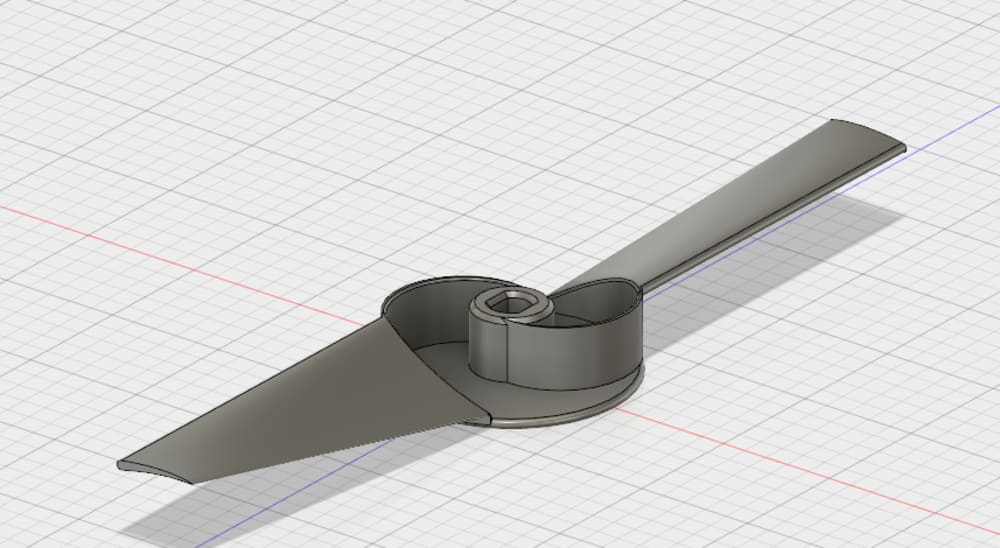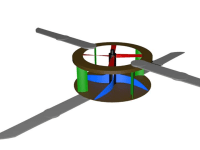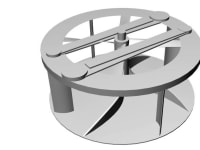The turbo - propeller differs that its blades are mounted on a turbo - platform.
This turbo - platform has two operating modes. In both modes it supplies the bottom blades with more dense air.
It already is advantage.
In the first mode capacity of the top forcing propeller is more than capacity of a turbo - expander and lateral blades. In that case the temperature of air is directly transformed in capacity of rotation - on known effect of a turbo - expander.
In the second mode on the contrary - capacity of a propeller of the turbine is less than capacity of a turbo - expander and lateral blades. Hence the turbo – expander and lateral blades pump out more air than can force a propeller. Therefore the propeller itself rotates under influence of grasped from above atmospheric air.
Taking into account that fact, that this stream of air is forced by atmospheric pressure - the propeller receives more energy than the turbo – expander and lateral blades spend on pumping out of air from within turbines.
If capacity of lateral blades will be too great, the variant without the top small propeller is possible too - in that case atmospheric pressure will press directly on a turbo - expander.
More simple variants of a turbo - propeller are possible too - for example, a blade mounted on the turbo-expander.
In this simple variant the expander can be conical and removable.
In case of use by helicopters or flying cars this propeller will be collapsible. Blades will be folded by means of worm, pneumatic or electromagnetic reducers. Blades of a small propeller of the turbo - platform will be attached to the automatic device of a skew, etc
Like this entry?
-
About the Entrant
- Name:Jacob Bizehr
- Type of entry:individual
- Software used for this entry:COMSOL
- Patent status:pending








